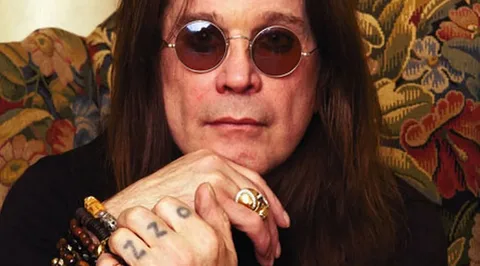Introduction
Few names in rock music carry the weight and wild mystique of Ozzy Osbourne. Often referred to as the “Prince of Darkness,” Ozzy’s career spans more than five decades and has influenced generations of rock and metal fans. From his early days as the frontman of Black Sabbath to his solo career and reality television fame, Ozzy Osbourne has carved out a place in music history that is both legendary and notorious. This blog delves into his life, musical journey, and enduring legacy.
Early Life and Formation of Black Sabbath
John Michael Osbourne was born on December 3, 1948, in Birmingham, England. Growing up in a working-class family, he faced hardships early in life, including poverty and dyslexia. Music became a refuge for him, and he was particularly drawn to The Beatles. Ozzy’s path changed dramatically when he joined forces with guitarist Tony Iommi, bassist Geezer Butler, and drummer Bill Ward to form Black Sabbath in 1969.
Black Sabbath is often credited with creating heavy metal as a genre. Their self-titled debut album, released in 1970, introduced dark themes, heavy riffs, and a style of music that stood in stark contrast to the flower-power sounds of the late 60s. Tracks like “Paranoid,” “Iron Man,” and “War Pigs” became iconic, and Ozzy’s haunting vocals helped define the sound of a new musical era.
Solo Career and Reinvention
In 1979, Ozzy was fired from Black Sabbath due to issues related to substance abuse and conflicts with the band. However, this setback marked the beginning of an incredible solo career. With the help of Sharon Arden, who later became his wife and manager, Ozzy launched his solo debut, “Blizzard of Ozz,” in 1980. The album featured hits like “Crazy Train” and “Mr. Crowley,” showcasing a revitalized Ozzy with a unique sound and renewed energy.
The success of “Blizzard of Ozz” cemented Ozzy’s status as a solo artist. Over the years, he released several successful albums, collaborated with world-class guitarists like Randy Rhoads, Jake E. Lee, and Zakk Wylde, and continued to evolve as a performer. His solo career allowed him to explore more theatrical elements in his performances, further enhancing his reputation as a wild, unpredictable showman.
Controversies and Challenges
Ozzy’s career has not been without controversy. Known for outrageous antics, including biting the head off a bat on stage, he developed a reputation as a rebellious figure in rock. His struggles with drug and alcohol addiction were well-documented, leading to numerous incidents that made headlines and strained personal relationships.
Despite these challenges, Ozzy has always been open about his battles, often using his experiences as material for his music. His honesty and resilience have endeared him to fans, who see in him a flawed but genuine figure.
Television and Pop Culture Icon
In 2002, Ozzy stepped into a new role as a reality TV star with the show “The Osbournes,” which followed the everyday life of the Osbourne family. The show became a massive hit, introducing Ozzy to a new generation of fans and revealing a more relatable, humorous side of the rock legend.
The success of the show contributed to Ozzy’s transformation into a mainstream pop culture icon. He appeared in commercials, made guest appearances on various programs, and became a beloved figure beyond the rock and metal community.
Legacy and Influence
Ozzy Osbourne’s impact on music and culture is undeniable. As a pioneer of heavy metal, he laid the groundwork for countless bands and artists who followed. His unique voice, theatrical performances, and fearless approach to artistry have earned him a place in the Rock and Roll Hall of Fame, both with Black Sabbath and as a solo artist.
Beyond music, Ozzy’s life story is a testament to survival and reinvention. He has faced personal demons, health struggles, and career setbacks, yet he remains a vital force in the music world. His ability to connect with audiences, whether through song or screen, continues to make him a compelling figure in entertainment.













Comments are closed